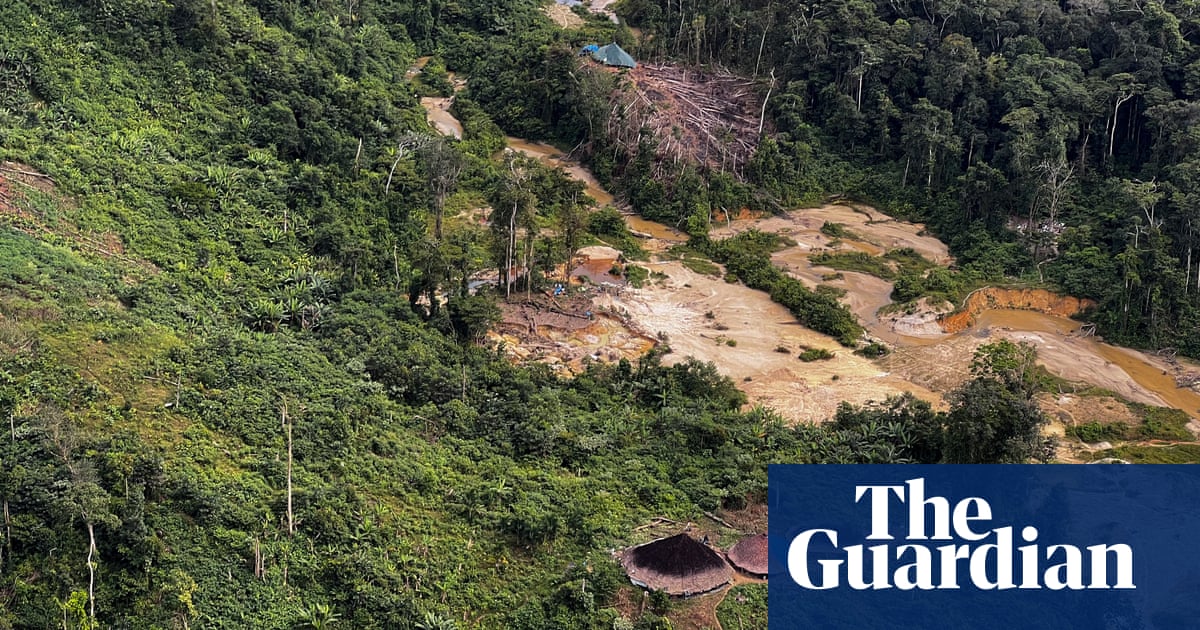
Thai police and civil servants have begun screening more than 100 former workers at a factory that supplied Tesco to determine if they were victims of forced labour.
The Guardian revealed last week that Burmese workers who produced F&F jeans for Tesco in Thailand had reported being trapped in their work, enduring 99-hour weeks for illegally low pay in appalling conditions.
Thailand’s department of labour protection and welfare conducted interviews with former workers at VK Garment factory (VKG) on Wednesday, alongside police at an immigration building in Mae Sot. Police said the interviews were due to continue on Thursday.
The move follows a raid by Thai police at the factory last week, less than 48 hours after the Guardian published its first article alleging sweatshop conditions.
Tesco faces a landmark lawsuit in the UK from 130 former VKG workers and a seven-year-old girl, who was raped in accommodation within the factory compound while her mother worked late making F+F clothes. They are suing Tesco for negligence and unjust enrichment and say they were paid as little as £3 a day to work until 11pm with just one day off a month.
The workers made F&F jeans and other clothes for the Thai branch of Tesco’s business between 2017 and 2020. Tesco, which had no role in the day-to-day running of the factory, said the allegations were “incredibly serious” and that it would have ended its relationship with the supplier “immediately” if it had identified issues of the kind at the time.
Oliver Holland, a solicitor leading the case at the law firm Leigh Day, said: “We are aware that the Thai authorities are today investigating the VK Garments factory used by Tesco to make F&F clothing, including interviewing over 100 of our clients to find out whether forced labour was occurring at the factory.
“Our clients allege that they experienced issues such as retention of identity documents, retention of wages, lack of freedom of movement, intimidation, threats, physical and sexual violence. These all fall under the International Labour Organization’s (“ILO”) indicators of forced labour.”
He added: “While it is positive that some action is now being taken, we do not believe that an investigation conducted more than two years since our clients worked at the factory can be a thorough investigation. It is illustrative of the lack of protection that is afforded to Burmese migrant workers in Thailand, who find it almost impossible to achieve justice in Thailand.”
The same workers have also been seeking justice in the Thai courts after being dismissed from the factory in 2020. They say they were dismissed after they confronted the factory about pay and conditions and asked to be paid the minimum wage.
The Thai labour court ruled in September that they were only entitled to severance pay and notice pay but an appeal was lodged in December reiterating their case for the payment of unpaid overtime, holidays and illegally low wages.
Phyo Phyo Mar, a former line leader at VKG, was one of 21 former workers who spoke to the Guardian about conditions. She was interviewed by officials on Wednesday but said the authorities’ approach to their case so far did not fill her with confidence that the case could be resolved using the Thai justice system.
“I feel as if they turned blind eyes to us,” she said, “because of this experience, I don’t have much hope.”
Roisai Wongsuban, of the charity Freedom Fund, which has been supporting the workers, said: “I am glad to see that the Thai authorities took action to screen for forced labour and trafficking victims. Irrespective of the case, the screening should have been conducted in 2020, when workers filed the complaint and shared details of labour violations and human rights abuse with the labour inspector.
A Tesco spokesperson said: “Protecting the rights of everyone working in our supply chain is absolutely essential to how we do business. In order to uphold our stringent human rights standards, we have a robust auditing process in place across our supply chain and the communities where we operate.
“We understand the Thai labour court has awarded compensation to those involved, and we would continue to urge the supplier to reimburse employees for any wages they’re owed.”
Sirikul Tatiyawongpaibul, the managing director of VKG, did not comment on the latest interviews but previously said nothing illegal had been found at the factory.
“We have provided safe working conditions to all employees,” she said. “We are regularly audited by independent auditors who are not affiliated with the company to maintain good working conditions for our employees and as required by law.”
Tatiyawongpaibul has disputed reports in the Guardian about her factory, calling them “hearsay”. She said the claims should be presented in court and could not be commented on, given the pending appeal in Thailand.












